Journalism during the war. Specifics, problems, challenges, and prospects. How do local newspapers and people manage to survive in the front-line territories and not be left in an information vacuum? These were the issues discussed by the Novyi Den newspaper from Kherson in an exclusive interview with the President of the National Union of Journalists of Ukraine (NUJU)/honored journalist of Ukraine and public figure Sergiy Tomilenko.
– Mr. Sergiy Tomilenko, we are talking with you during a large-scale project taking place in Krakow called RE:COVER 2023. Its participants are almost 150 international and Ukrainian journalists. Many media persons arrived from Ukraine, in particular representatives of regional and district mass media operating in the front-line and border areas. I know that the NUJU played a big role in ensuring that Europe heard firsthand about local Ukrainian media. Please, tell us how you managed to “break through” it?
– Actually, in times of great challenges, we can see international solidarity, both with Ukraine in general (which is confirmed by the provision of weapons and humanitarian aid) and in the information field. One of the leaders of such enormous solidarity is the German government. Providing equipment, awarding scholarships to media workers, financing newsrooms, training sessions, sheltering media representatives through foreign programs, etc., are the opportunities administered by the respected German European Centre for Press and Media Freedom (ECPMF). So, this organization decided to hold annual Ukrainian conferences.
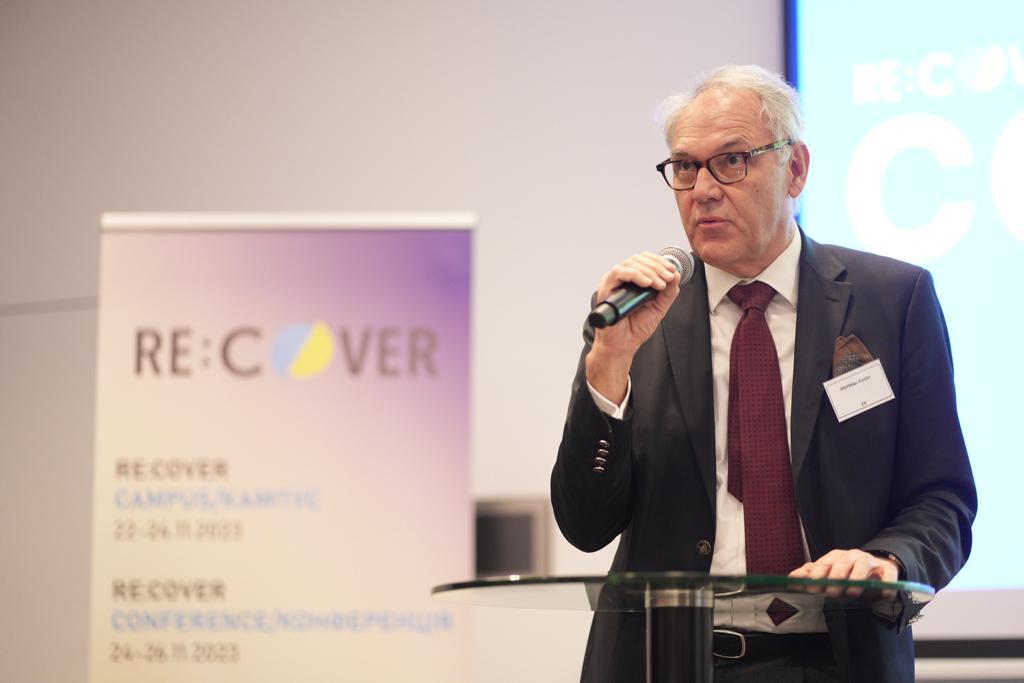
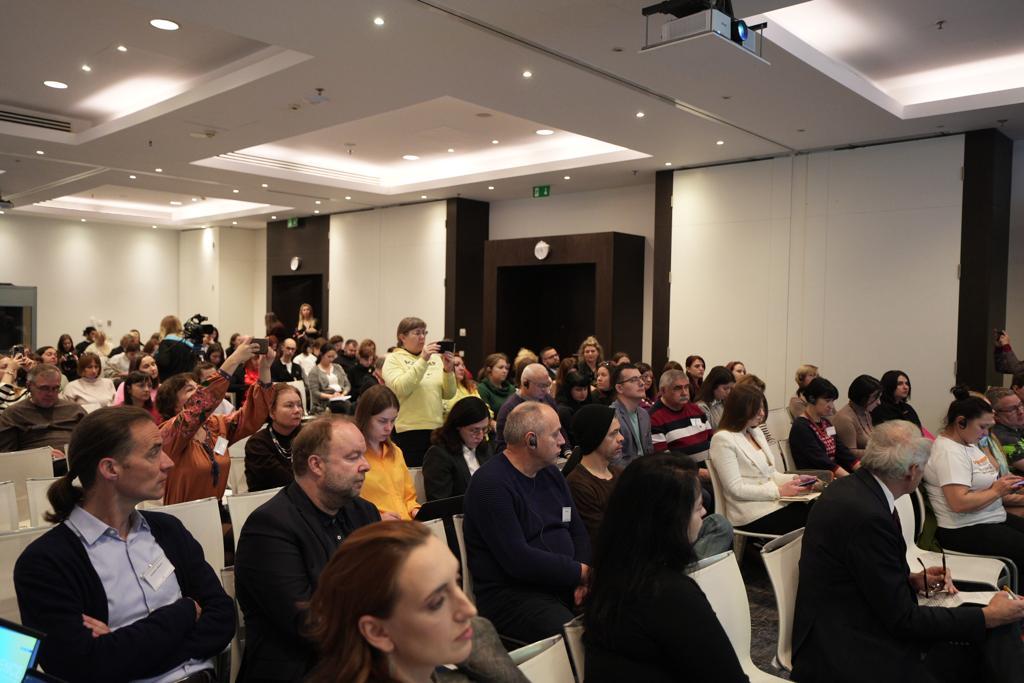
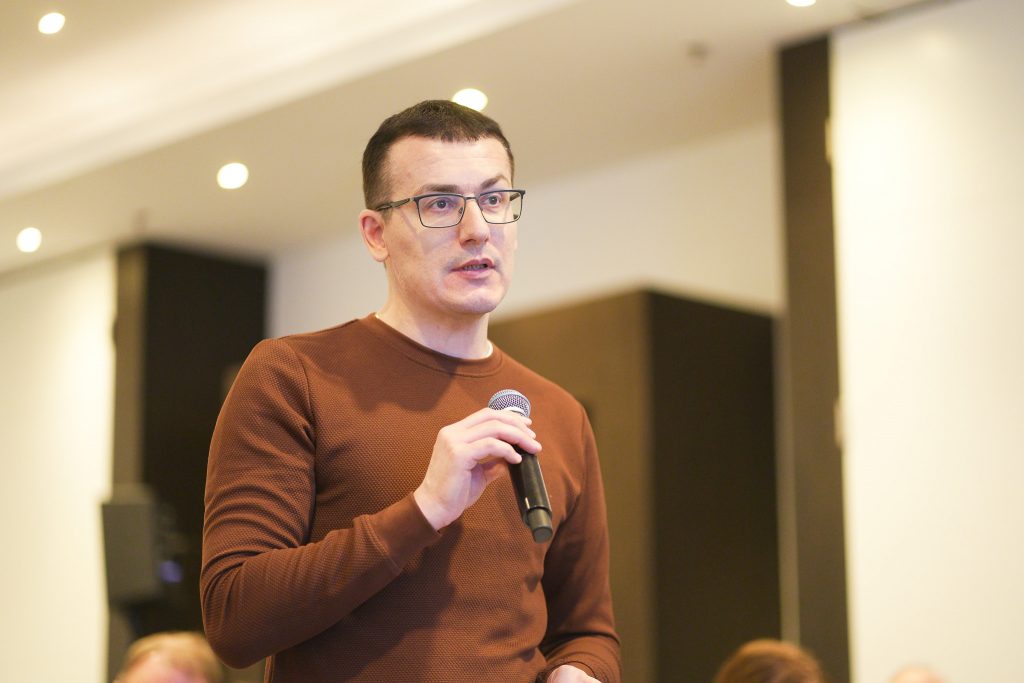
The large-scale conference in Krakow is dedicated to issues of support for journalists, stability of the media landscape, and resistance to hostile propaganda. The NUJU is in partnership with ECPMF. As soon as it became known about the organization of such a large event, I asked to allocate a certain number of places for journalists from the front-line, occupied regions. It is extremely important for our colleagues, who are actually rebuilding their broadcasting and their media from the ashes, to be on the same page with international partners in order to be heard and count on stable support. It is a great joy for me that not only representatives of the national mass media and media workers from the respectively peaceful cities of Kyiv, Lviv, Cherkasy, and Poltava but also journalists from the Kherson Region, Kharkiv Region, from the same front-line Orikhiv, Zaporizhzhia Region, etc., came to Krakow.
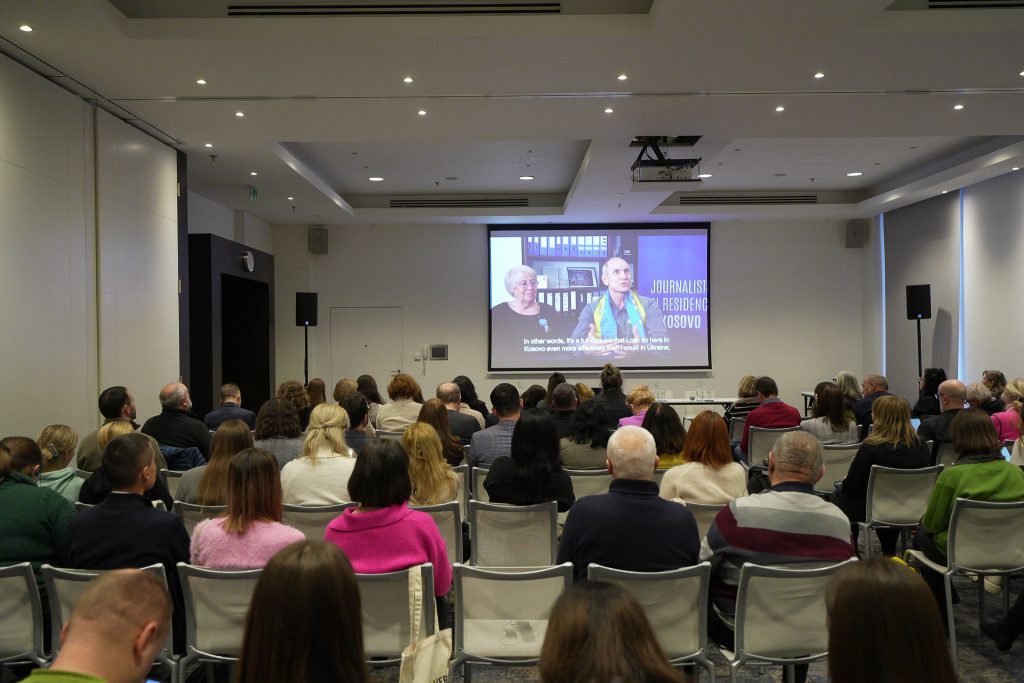
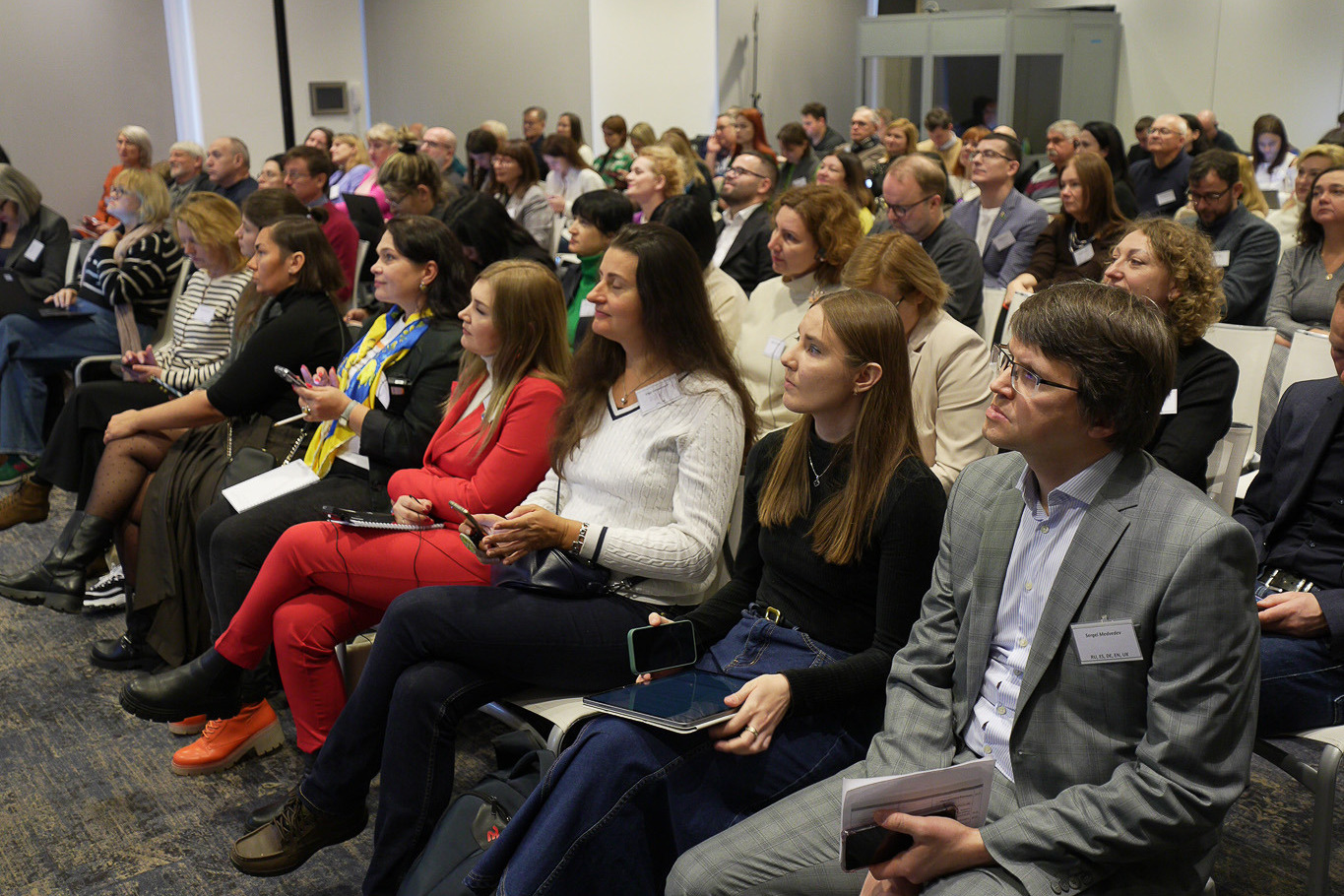
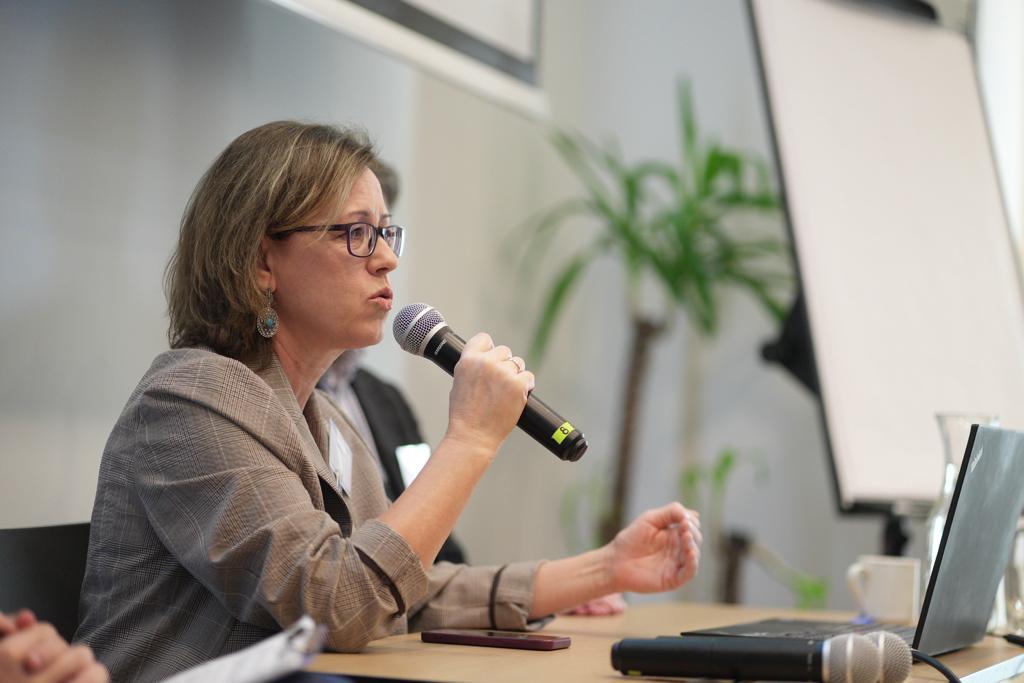
The Union‘s mission is to help as many journalists as possible remain in the profession so that Ukrainians have access to information. And in order to have this access, one strength of spirit, which is certainly present in our journalists, is not enough. There is a material resource component. We always advocate that real media, responsible before their audience, have access to international donors and, accordingly, can continue to count on certain support. And when we talk about towns and villages destroyed by the occupiers, often the print media and newspapers are the only means of mass information available to Ukrainians in these territories. And under the circumstances, if Novyi Den from the Kherson Region, Obrii Iziumshchyny in the Kharkiv Region, and Trudova Slava from the Orikhiv District were not published, it would mean that part of the residents of these territories would be in a complete information vacuum, in the space of fakes of hostile propaganda and despair. As a matter of fact, the colleagues present here survived thanks to the support of international donors. This is the best proof that this aid was intended, the right decision. And, accordingly, the best argument is that support must be continued. And I am proud that the NUJU, thanks to the support of our international partners, has resumed publication of 30 front-line newspapers.
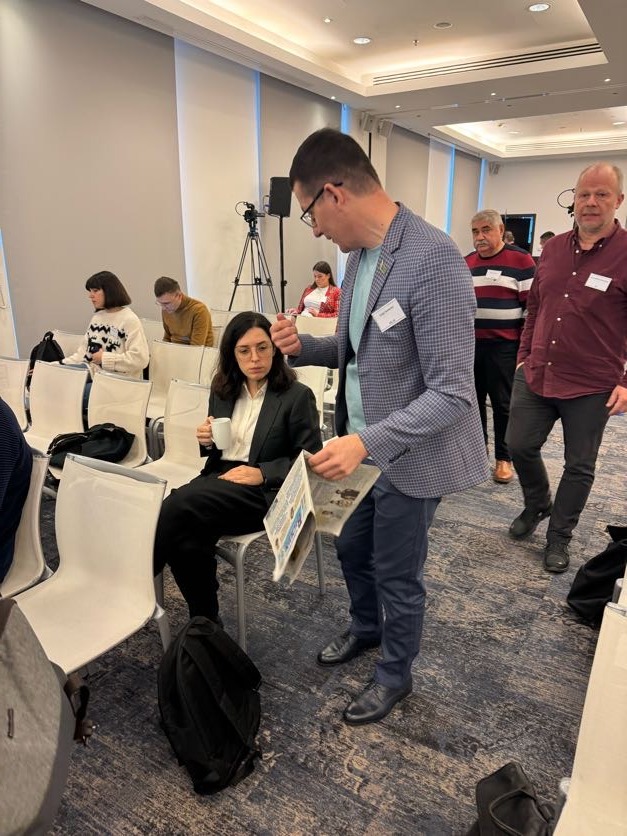
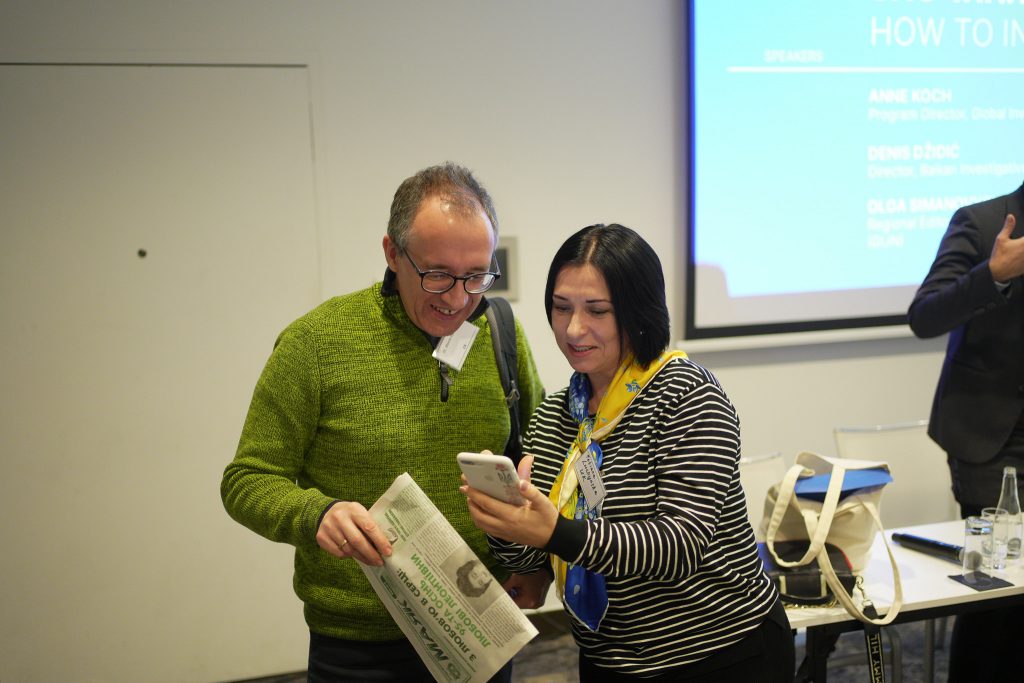
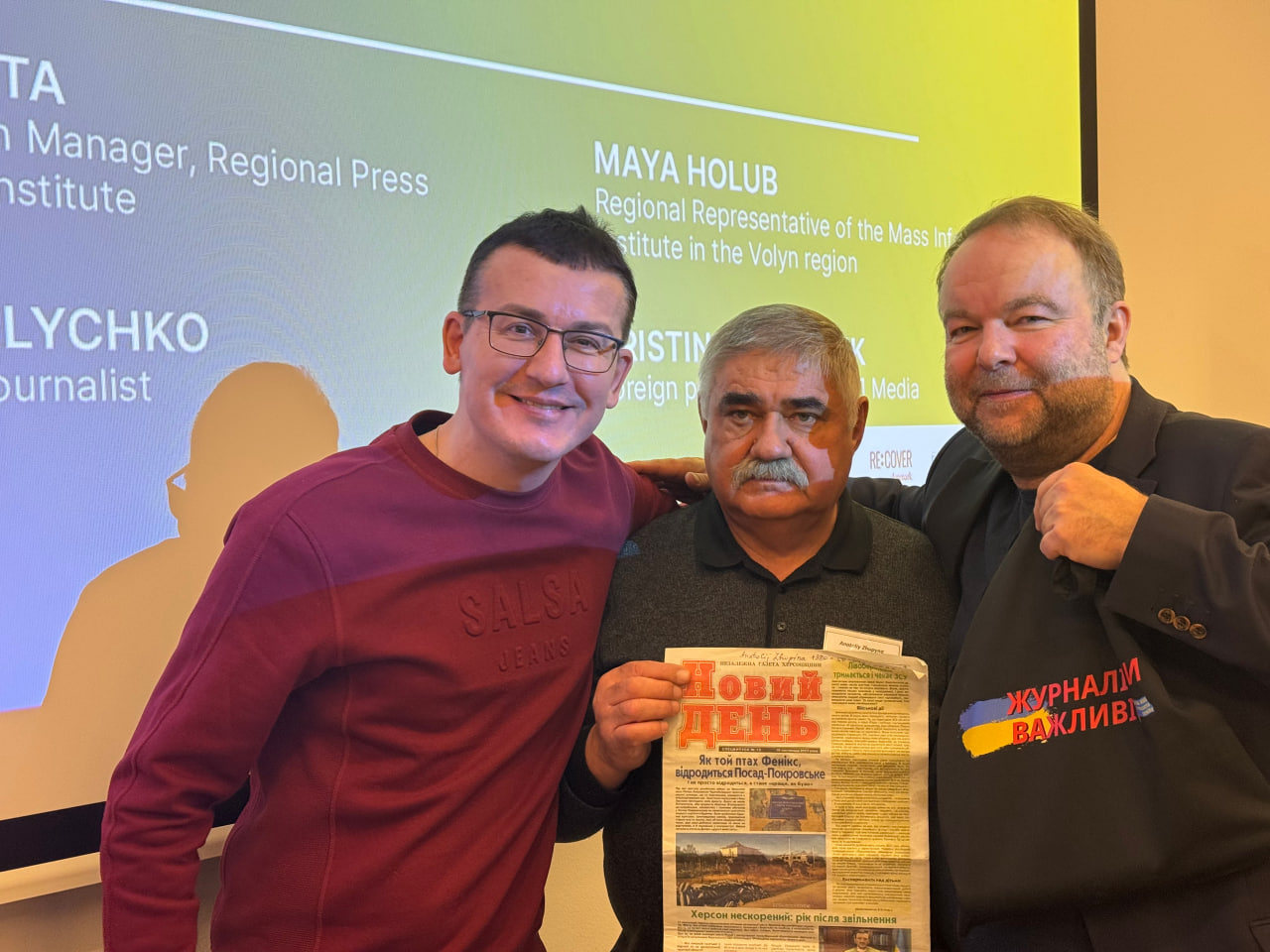
– If we go back to February 24, 2022, when a part of Ukraine was already occupied, Kyiv was being bombed… Then, it was not about the newspapers that needed to be supported. But the time has come – and such an idea appeared. But it is clear that the state will not do this, as, again, it is “busy” with something else… And as it turned out, international partners are interested in this.
– Of course, we would like the Ukrainian government to take the lead in global calls for the importance of supporting the media, especially regional ones. We are aware that the priority for the state budget of Ukraine today is spending on “defense.” We are not saying that the media sphere should be financed from the same funds. On the other hand, we say that the government could call on international institutions, organizations, and governments to support the Ukrainian information industry. There are large corporations and digital platforms for which support for the media and journalists is their natural component. There are governments, like the Norwegian one, for which the value of freedom of speech is important. They are leaders in all rankings in this field; for them, this is a very sensitive issue, and they have huge budgets. But if the Ukrainian government does not ask them to support regional media, then they will not allocate a large resource in the absence of a relevant request. Therefore, we, as the Union, in contact with government officials with the Ministry of Culture and Information Policy, call on them to support all types of information channels that Ukrainians consume. Our idea is that one should not focus only on watching the television marathon (telethon) because it is not the only source of information about events in Ukraine. For example, the telethon does not compensate for the need for information for the people of Kherson. Firstly, many do not have the opportunity to watch the telethon, and secondly, there is a small percentage of content about the said territories. Let the government support Yedyni Novyny as a certain official channel of communication, but let efforts also be made to support other broadcasters: regional, national, online media, and newspapers. The NUJU knows that today, the majority of local media are kept alive thanks to professional journalists and editors who have devoted tens of years to these media, who are responsible before the audience, and who, even in the absence of one of the grants, look for options to fulfill their obligations to readers, viewers, and listeners.
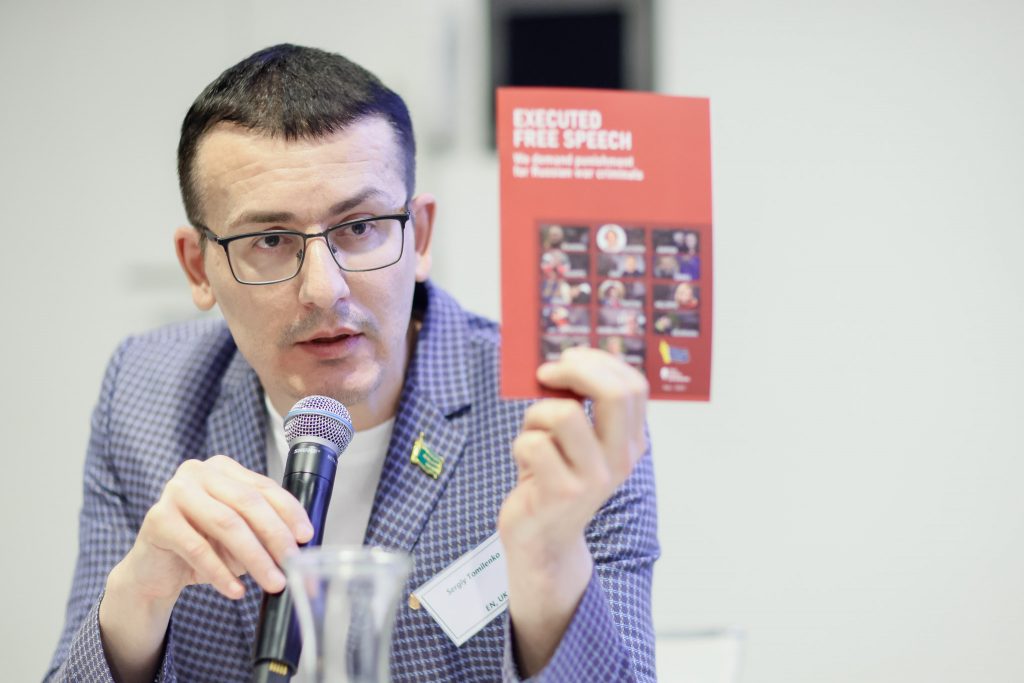
– But during the RE:COVER 2023 conference, representatives of international organizations that help Ukrainian media asked to remember that this cannot last forever, which is logical. Your predictions: what will happen next with regional journalism in Ukraine?
– I share the resentment because of the comparison from one of the German experts. We are talking about the example of Afghanistan, where the media fell when the media stopped after the final of the military coup because they were completely dependent on foreign support. I consider such a comparison to be incorrect because, first of all, we are talking about the fact that before the full-scale invasion, most of the regional media, in particular those of Kherson, which are now near the front. However, they were in an economic crisis and lacked the resources to maintain their financial independence thanks to advertising and subscriptions. It has nothing in common with the Afghan media, which were founded from scratch, 100% with foreign money, and, accordingly, stopped their operation when there was a lack of these funds. The reason now is that the media, which were independent and self-sufficient before the full-scale invasion, under the conditions of this war, obviously cannot rely on sources of funding similar to those existing in peacetime.
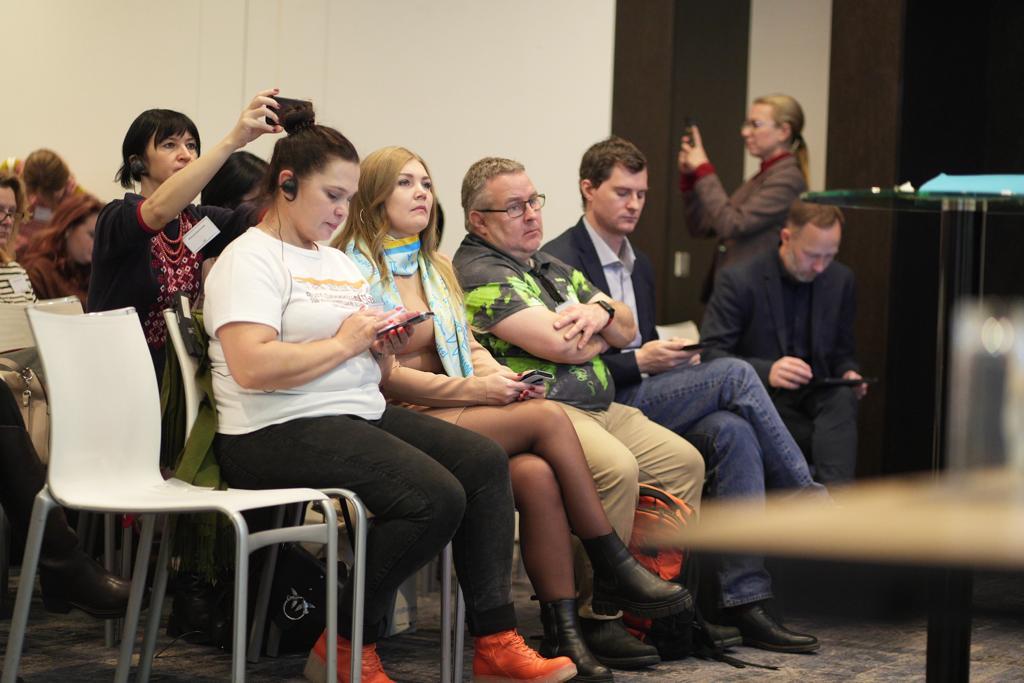
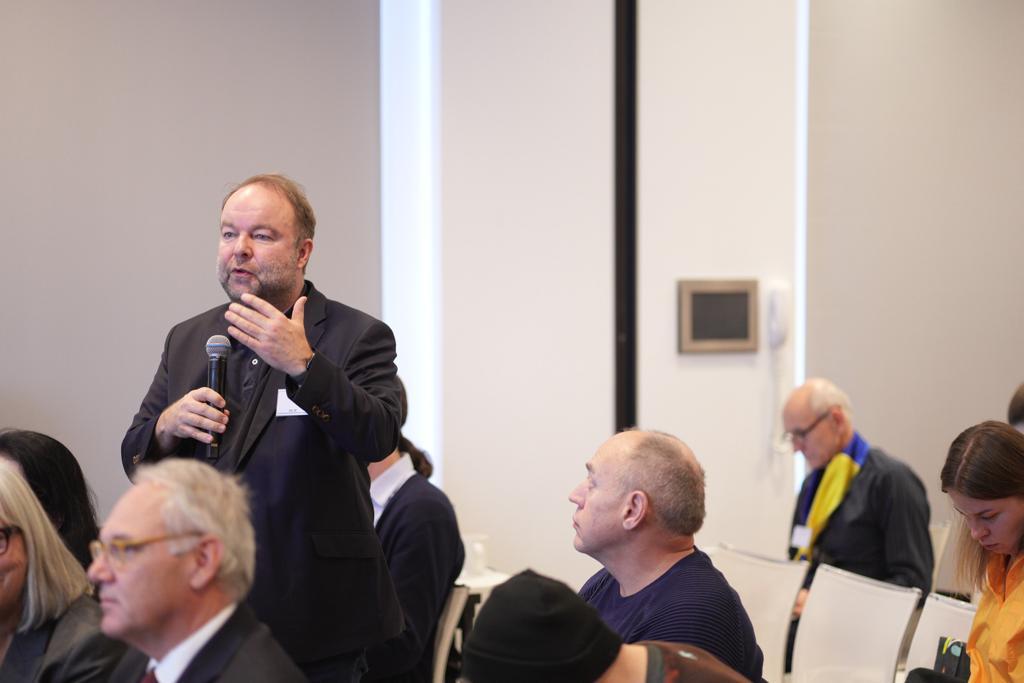
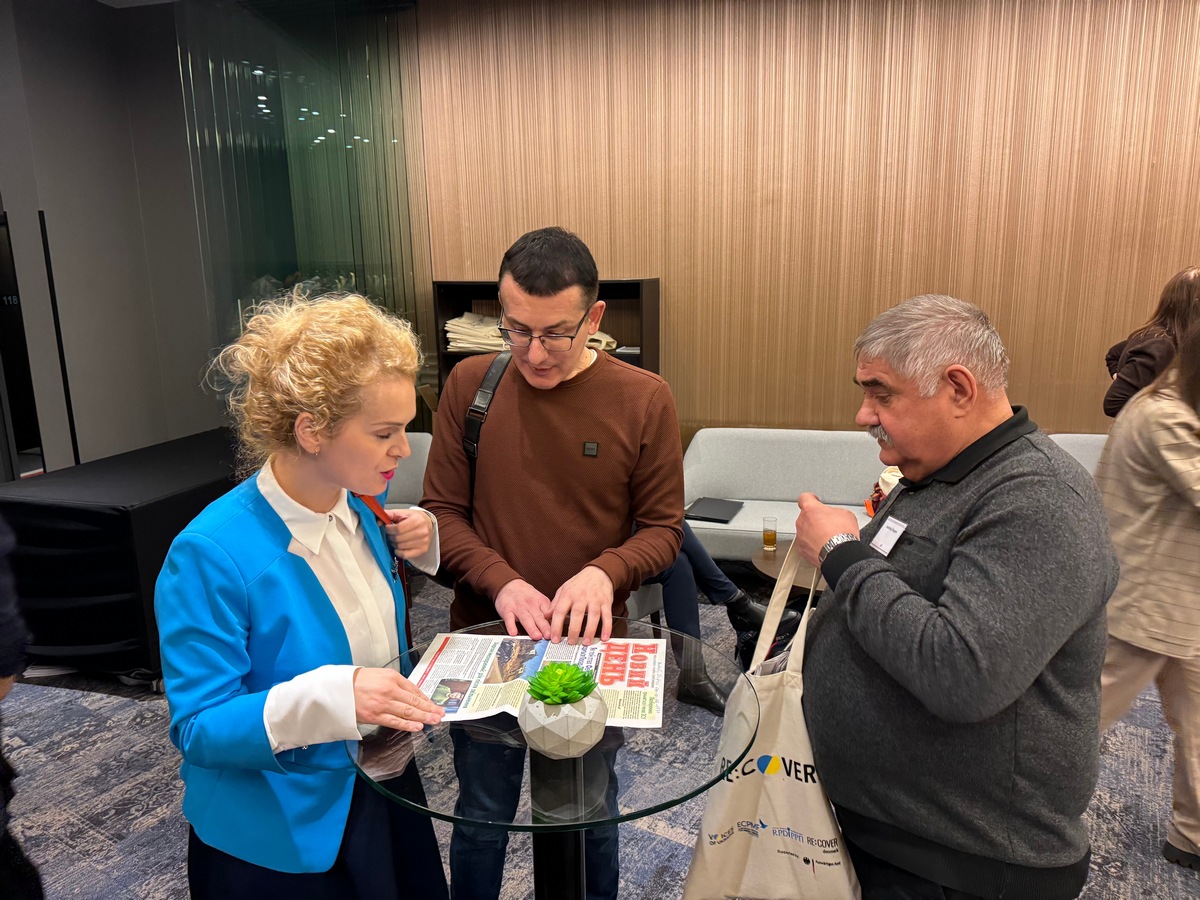
Yes, help from international partners is important, but it is temporary. Therefore, in communication with colleagues from regional mass media, we urge them to transform their activities, look for new sources of income, and find new partners to implement digitization. Donor projects should be perceived as opportunities to transform some pledge for the future. But in no way do we encourage grant-making among the mass media. There should be a search for prospects. For example, in Ivano-Frankivsk, as part of the wonderful project of International Institute for Regional Media and Information (IRMI, Ukraine) and the Swiss organization Fondation Hirondelle, which supports, in particular, the newspaper of the Kherson Region Novyi Den and other publications, the RAI TV and radio company purchases television equipment, a radio studio, a recording studio has been set up, where commercials are recorded, commercials and not only. There is such a capitalization in improvement, where the TV and radio company will be able to make money using the equipment purchased with donor funds. And this is far from the only example of investment. As for forecasts, this is a thankless business.
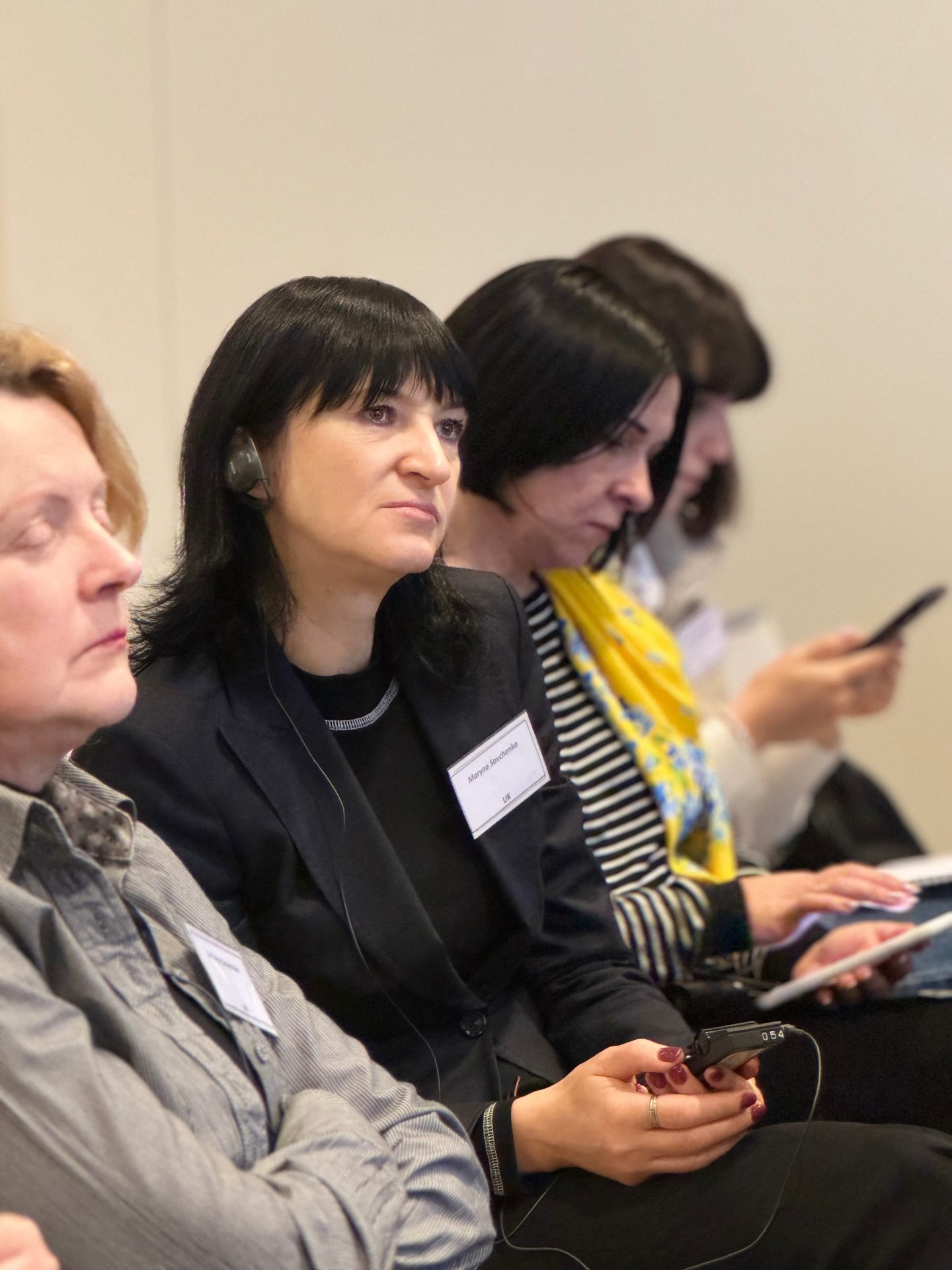
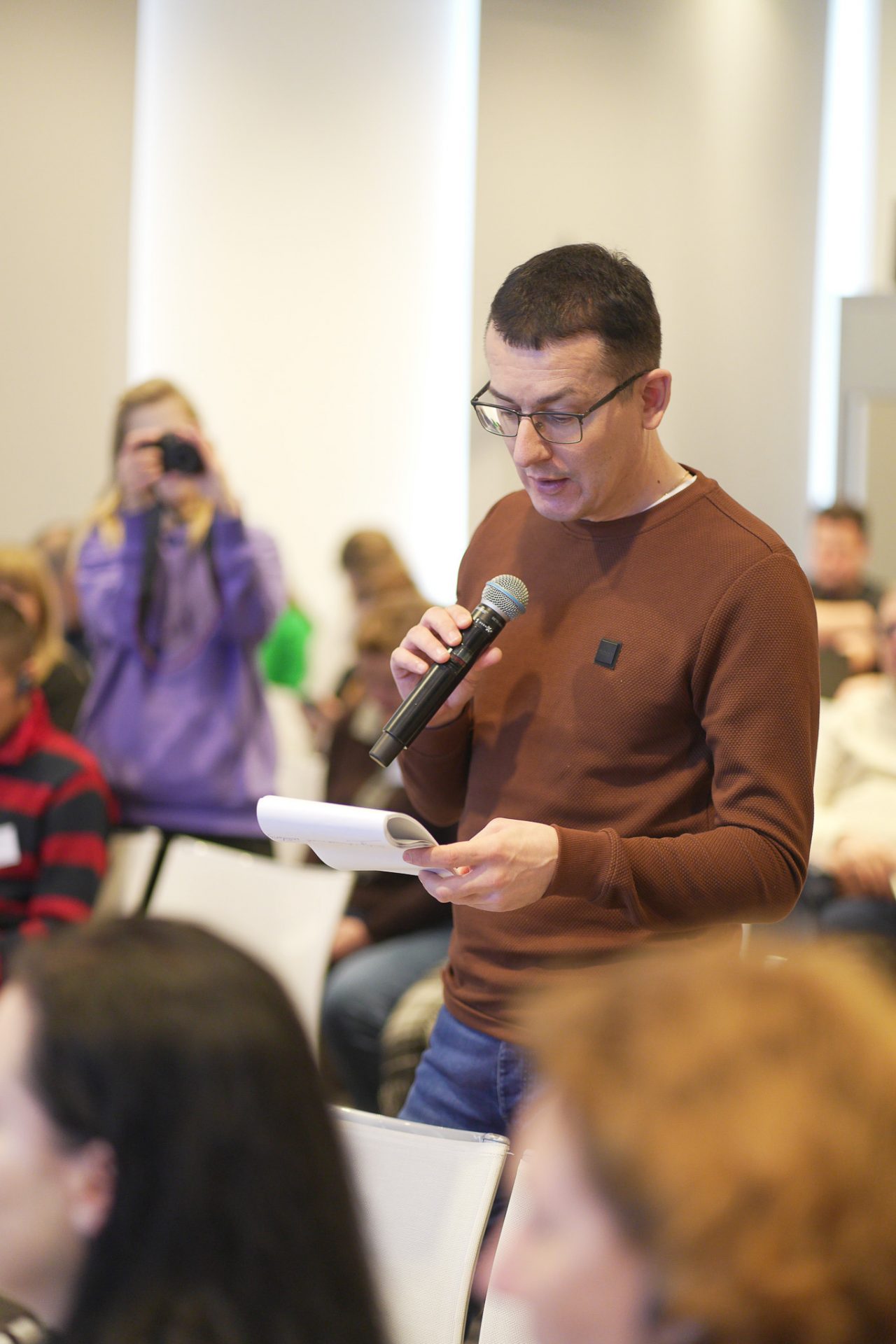
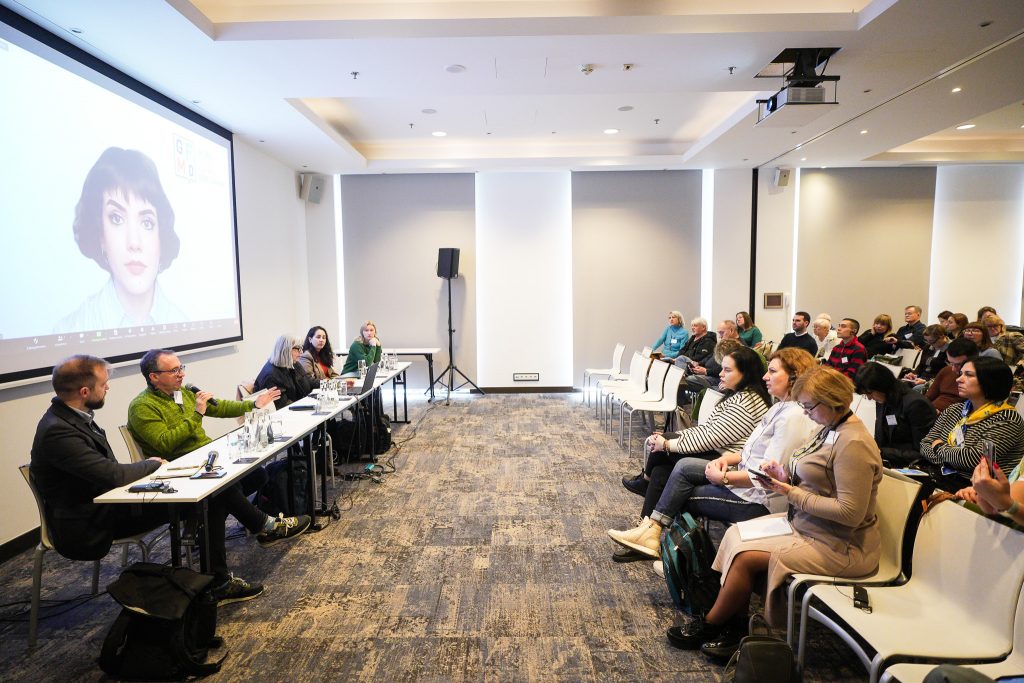
– Was the media experience of the countries that went through the war monitored? We are not talking about Afghanistan, but considering the same path of Kosovo, what can await the Ukrainian mass media?
– Unfortunately, the war in Ukraine has been going on for a long time, and it is not like other wars. And just like now, the reaction of the civilized world to Putin, to the occupiers, in other countries resulted in solidarity and a large amount of aid: technical, material. But over time, the world gets tired of war, tired of sharing resources. And this long-lasting war is a great challenge, in particular, for Ukrainian journalists. You know that at the beginning of the invasion, many journalists from the occupied territories did not even accept the idea of evacuation because they were waiting for liberation from day to day.
– It’s true; I personally was in no hurry to leave occupied Kherson because I dreamed of waiting for the AFU [Armed Forces of Ukraine]. But I still had to run away in order not to be captured…
– This is the first moment. The second is that even when journalists left the occupation, they were ready to volunteer, waiting for victory and only such an end to this unjust war. And since, unfortunately, it is still ongoing and in almost two years, there is no clear prospect of stopping, it is already a big challenge for Ukrainians and a burden for international donors. The events in Yugoslavia and Kosovo were also tragic and terrible, but they did not last too long. But, again, we expect that our international partners will continue to understand that supporting Ukrainian media means supporting a component of the security of Europe and the civilized world. Ukraine not only protects its interests and independence but also stands on guard – like a certain territory that does not allow evil to pass further. And accordingly, the question here is, “Is the civilized world ready to take on certain costs and obligations, understanding that these are investments in its security? Do they want to feel what Ukrainians feel now? Do they want to see these tragedies, this destruction, evil, injustice? Poles, Baltics, Germany, and others.” Obviously, no one wants that. That’s why we have to convey these arguments to our partners. This support is expensive, but it is economically cheaper than having a war with occupiers in your territory.
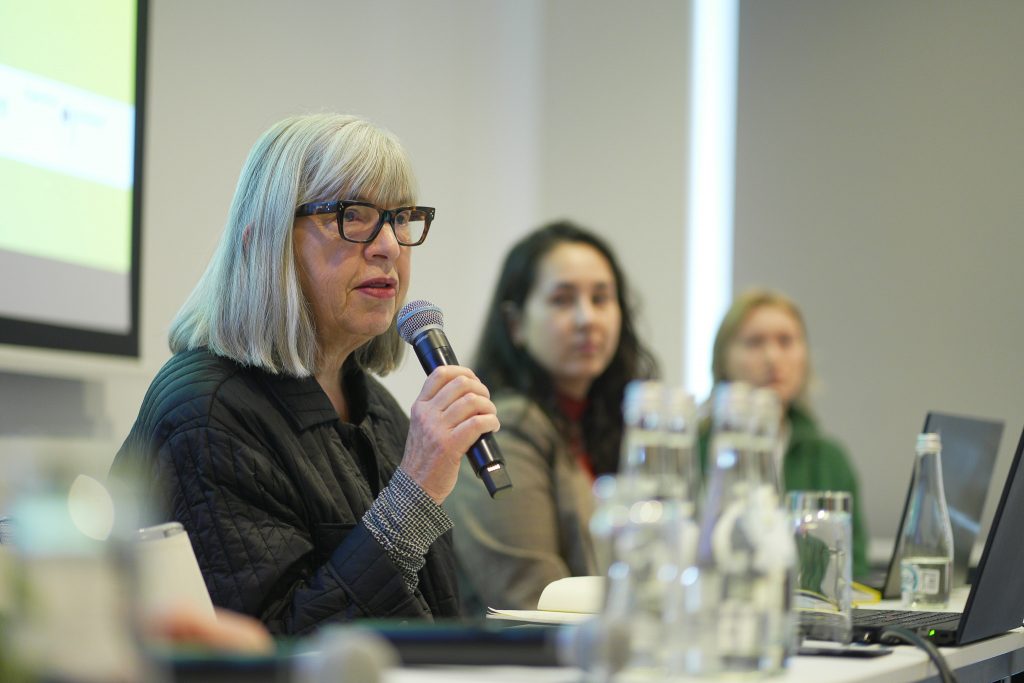
– Journalism in Ukraine changed during the war. At the start of the full-scale invasion, we covered the events intuitively as we saw it. Then came the training sessions, which brought legal standards for the work of journalists in such conditions with them. After all, professionalism comes first and emotions later. Is this also the work of the NUJU?
– Of course, the emotions of Ukrainian journalists are understandable – the occupiers came to our land. It is a just response to evil. But on the other hand, when we reconstruct the circumstances of russia’s war crimes, we give the floor to the victims of war crimes; this is evidence at the international level. And here, we have to decide whether we want to show emotions and there will be a deviation from the standards, a loss of argumentation in the materials, or we want it to be fair and have a basis for a global tribunal for the punishment of evil. Therefore, of course, media workers should constantly upgrade their qualifications and exchange experience. At one point, everyone became a war correspondent, which no one was ready for. There were up to 40 journalists across the country who had real military experience, thanks to the fact that they deliberately went to work in the ATO zone. But before that, the media workers underwent training and had special permits. And these were the bravest journalists. In Kherson, Melitopol, etc., there were no war journalists; those were civil media workers who simply continued to work in war conditions. And it is necessary to study so that every journalist can save their life.
After all, no report or the most effective stand-up is worth a life. Another point touches on the victims of war crimes. It is unacceptable to psychologically traumatize people who lived under occupation and had injuries, and not only physical ones. In the same way, we have to competently cover war crimes in general. There are a lot of challenges. As the Union, we conduct such seminars and webinars. We have an understanding with international partners, and accordingly, we are trying to raise the level of qualifications. It is high among Ukrainian journalists today. There are qualified organizations that know how to cover armed conflicts and wars, and they share this experience. In particular, the Fondation Hirondelle, together with the IRMI, implemented the project titled Strengthening Media Sustainability In Ukraine. It is financed by the Swiss Solidarity organization. Eighteen media from the de-occupied and front-line territories became participants in the project.
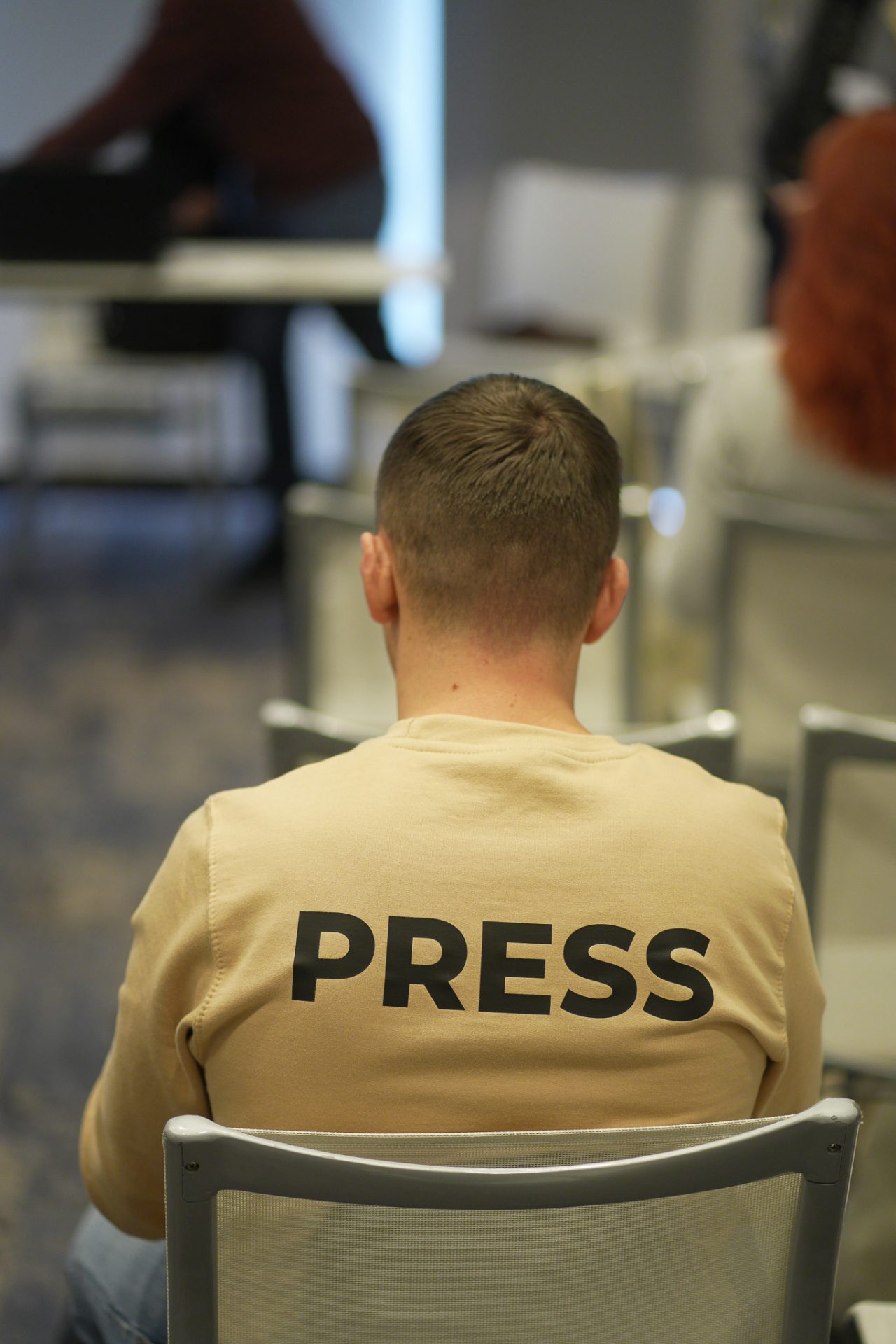
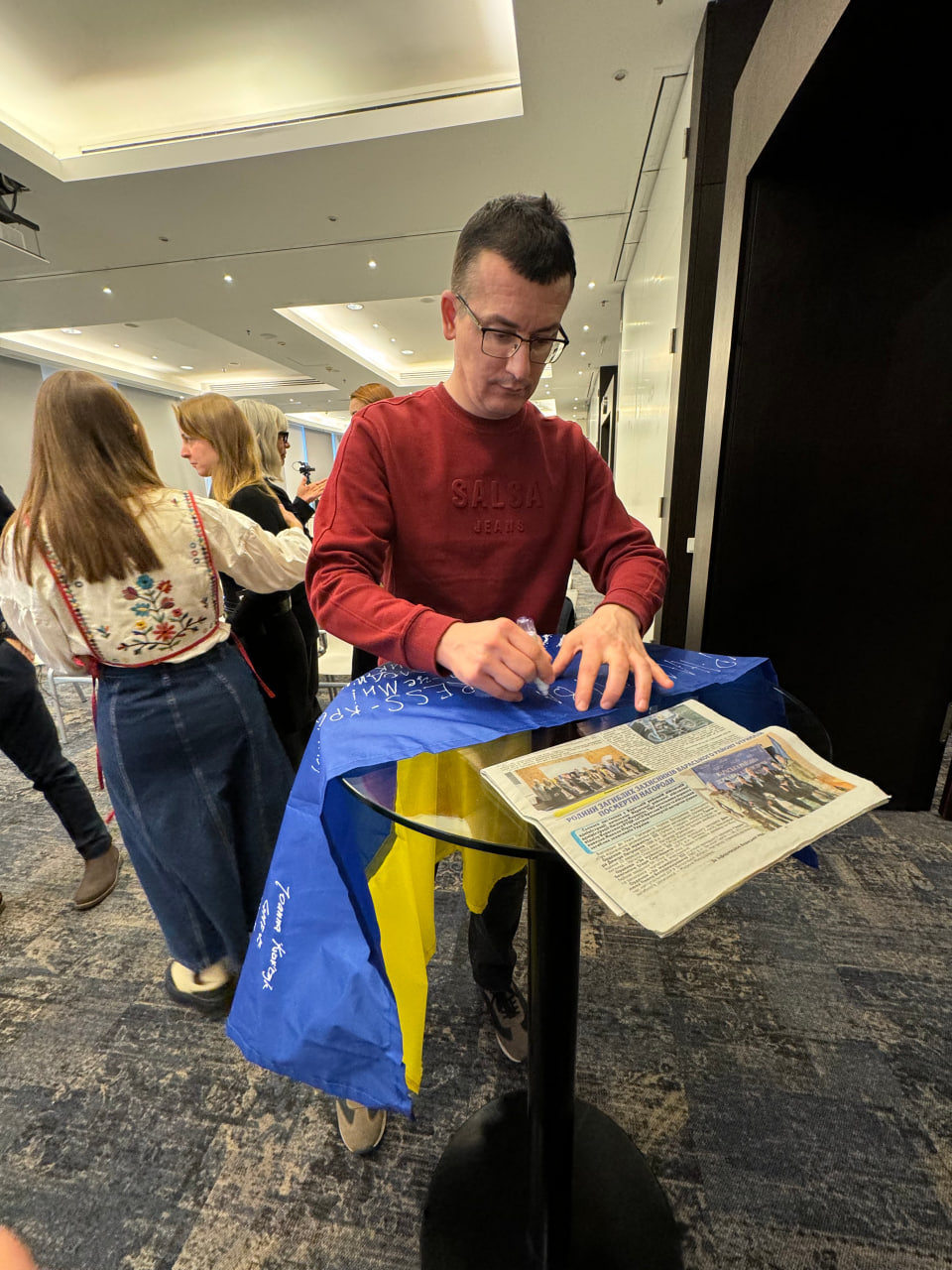
UNESCO headquarters strategically supports the NUJU and helps to operate a large network of Journalists’ Solidarity Centers (JSC), through which we provide emergency support and, at the same time, organize various training events. Now, the period has come when every journalist, who may have previously been in their own bubble, regional, national, but intra-Ukrainian, enters the international arena. We must communicate with international journalists and international organizations because there are no economic resources inside the country. We need both financial support and knowledge from international partners. By the way, thanks to the fact that we, the Union, held photo exhibitions of the works of Ukrainian journalists in Paris and Brussels in October, I held negotiations at the UNESCO headquarters. We drew attention to front-line newspapers. Today, I can report that the UNESCO headquarters has decided to continue supporting the resource project – the JSC network for the winter period until spring. And one of the heads of the Danish Association of Journalists just the other day, when I was already in Krakow, called and informed me that it was under the influence of our materials that Danish journalists provided us with EUR 6,500 of their funds as an emergency aid fund. We will use these funds as emergency aid for journalists from the front-line areas if someone’s home is destroyed, etc. This is the result of cooperation with international partners. And we recommend that newsrooms and journalists look for international connections for further development.
Maryna Savchenko

 THE NATIONAL UNION OF
JOURNALISTS OF UKRAINE
THE NATIONAL UNION OF
JOURNALISTS OF UKRAINE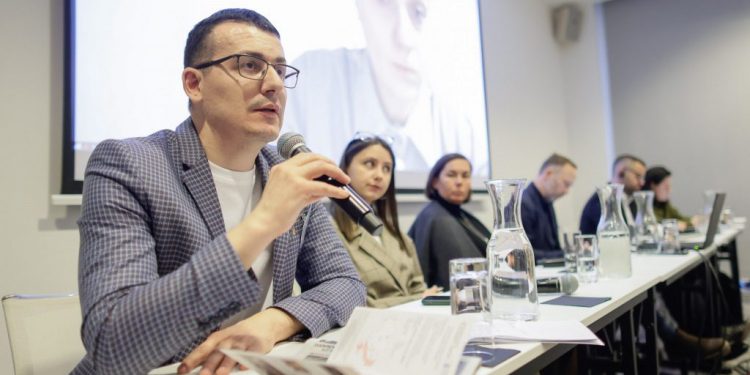
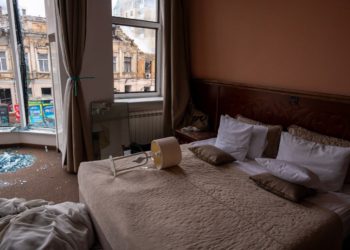
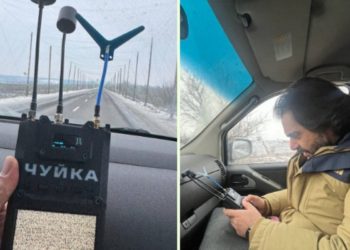
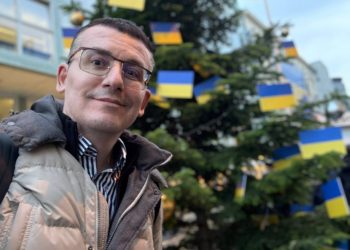













Discussion about this post